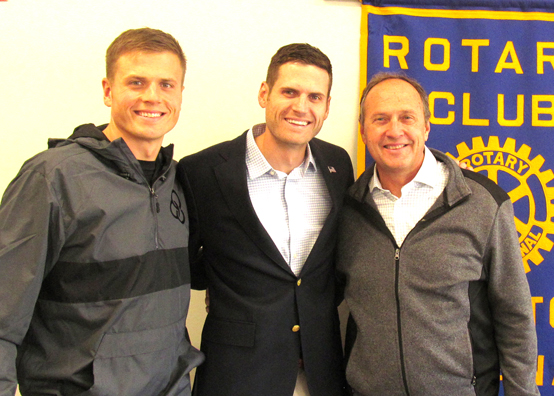We have lost the art of thoughtful debate.
Every time I heard this question “Do you support Donald Trump?” I knew I had lost a vote in my effort this past spring to win the Republican nomination to Congress. If you cared to ask about my position on former President Trump, odds were I was neither MAGA enough nor anti-Trump enough for your liking.

My most memorable (and humorous) time receiving this question was after I spent half an hour with a 90-year-old man agreeing on most every policy we could think to discuss. I left the meeting with instruction to tell everyone at an upcoming event that I had his support. The next day I received a call from his daughter saying her dad wanted to know if I supported Trump. I shared my stance, she relayed it, and then she apologetically said that her father could no longer support me.
Losing a vote rarely bothered me — it was bound to happen because I refused to be inauthentic to garner support. What did bother me was the frequent unwillingness to have a conversation about things that we differed on. Don’t get me wrong, I had many excellent, refining discussions about policy positions with people I differed from during the campaign, but even more were dismissive.
If there is one thing I learned from my experience of running for Congress, it is that as a society we have lost our ability to genuinely listen, debate, and be open to thoughts/ideas that differ from our own. So, I have been contemplating both “why” that is and “what” we have become as a result.
First, “why.” Based on personal observations, I would speculate that our unwillingness to converse about alternative ideas is due primarily to two things: 1) An absence of thoughtful debate and proper training in recognizing cognitive fallacies (something that should be present in our school systems and homes) and 2) our homophilous society that has been catalyzed by social media algorithms (think echo chambers / the belief that “Everyone agrees with me.”)
These two things lead to the questions: “When most every good person agrees with me anyway, why should I care about listening to what others say?” “Why should I hone debating skills?” “Why should I allow my worldview to be challenged?”
I have asked myself these same questions. The best answer I can offer: When we mindfully allow our views to be challenged, either they are changed, or they are refined — each can be positive. And perhaps just as important, we begin to push back on the “what” we have become.
Because our society has lost its ability, or even interest in, genuinely listening, debating, and being open to new ideas, we have forfeited one of the most incredible traits of being human — the ability to communicate. In the United States today, 59% of people find talking to others about political differences stressful (according to Pew Research). More heartbreaking, 1 in 6 Americans are not speaking with a family member because of politics (according to Harvard Professor Arthur Brooks). That statistic doesn’t say, 1 in 6 avoid speaking about politics, it says 1 in 6 have completely shut family out of their lives over an inability to navigate these conversations in a manner seasoned with thoughtfulness and covered by grace.
Throughout our campaign I stated, “America needs renewal, and I believe that northeast Indiana must lead the way in inspiring it.” I believe these words as much today as ever before. Neither Donald Trump nor Kamala Harris will rouse it—it must come one loving and truthful human interaction at a time, with the blessing of God’s favor. And in the meantime, let’s do the best we can to be informed on policy positions, economic plans, competency in the role, history of decisions made, and character as we decide whom to cast our votes for at all levels of government this November.
Be well!
Grant Bucher is a Bluffton native who was a candidate
for the Republican nomination for the 3rd Congressional
seat in the May primary. He wrote this for the News-Banner.



